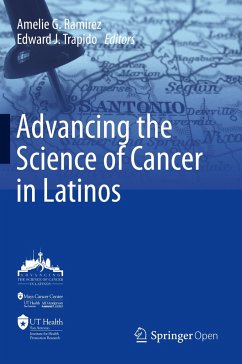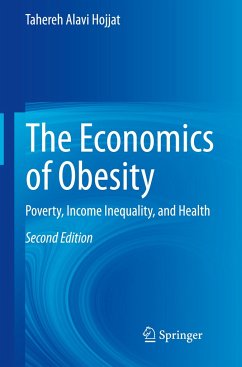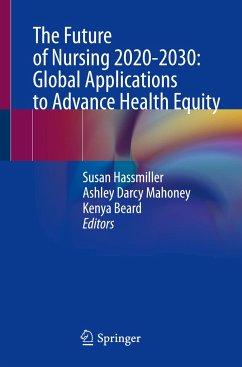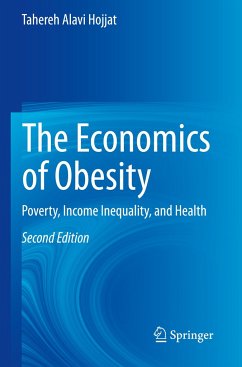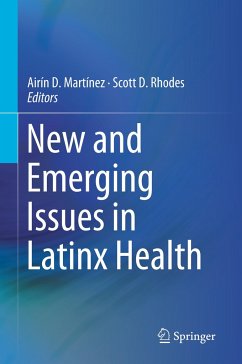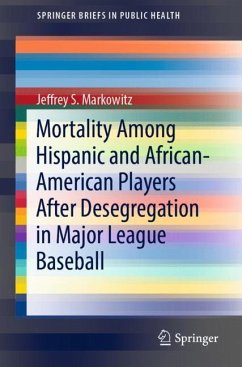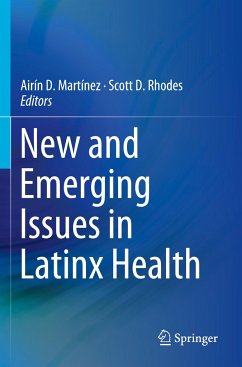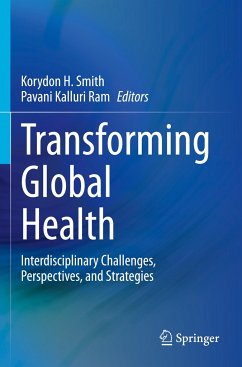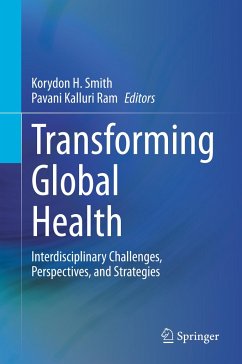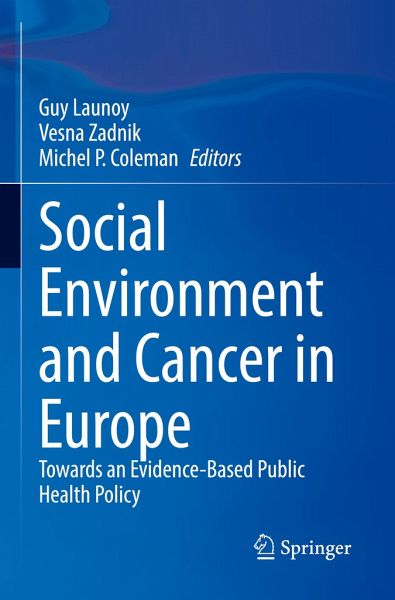
Social Environment and Cancer in Europe
Towards an Evidence-Based Public Health Policy
Herausgegeben: Launoy, Guy; Zadnik, Vesna; Coleman, Michel P.
Versandkostenfrei!
Versandfertig in 6-10 Tagen
80,99 €
inkl. MwSt.

PAYBACK Punkte
40 °P sammeln!
This contributed volume addresses the link between the social environment and cancer in Europe. The authors document the wide range and diverse trends in cancer incidence and patient survival in Europe, and they identify the main mechanisms and key influences that underlie these inequalities. They suggest a series of actions and programmes to tackle these inequalities in Europe, within the conceptual framework of intervention research.The influence of the social environment on the risk of suffering and dying from cancer is obviously a global phenomenon, as evidenced by a growing number of stud...
This contributed volume addresses the link between the social environment and cancer in Europe. The authors document the wide range and diverse trends in cancer incidence and patient survival in Europe, and they identify the main mechanisms and key influences that underlie these inequalities. They suggest a series of actions and programmes to tackle these inequalities in Europe, within the conceptual framework of intervention research.
The influence of the social environment on the risk of suffering and dying from cancer is obviously a global phenomenon, as evidenced by a growing number of studies and books. In part, the underlying mechanisms are universal. Given the availability of a new standardised measure for social deprivation in Europe (the European Deprivation Index), the networking of population-based cancer registries across Europe as efficient surveillance tools, the increasing comparability of the organisation of care in European countries,and the recent launch of Europe's Beating Cancer Plan, this extensive review of social inequalities in cancer on a European scale is both relevant and timely.
The book consists of 21 chapters organised in four sections:Part I - General Considerations and Methodologic AspectsPart II - Social Disparities in Cancer Incidence and Survival - ReportsPart III - Social Disparities in Cancer Incidence and Survival - MechanismsPart IV - Towards an Evidence-Based Policy for Tackling Social Inequalities in CancerSocial Environment and Cancer in Europe: Towards an Evidence-Based Public Health Policy is a unique resource that presents up-to-date methods for analysing quantitative data. It focusses on inequalities in cancer incidence and survival within the wider framework of inequalities in health. This book will be an essential reference for policy-makers, researchers, public health professionals, social scientists and oncologists.
The influence of the social environment on the risk of suffering and dying from cancer is obviously a global phenomenon, as evidenced by a growing number of studies and books. In part, the underlying mechanisms are universal. Given the availability of a new standardised measure for social deprivation in Europe (the European Deprivation Index), the networking of population-based cancer registries across Europe as efficient surveillance tools, the increasing comparability of the organisation of care in European countries,and the recent launch of Europe's Beating Cancer Plan, this extensive review of social inequalities in cancer on a European scale is both relevant and timely.
The book consists of 21 chapters organised in four sections:Part I - General Considerations and Methodologic AspectsPart II - Social Disparities in Cancer Incidence and Survival - ReportsPart III - Social Disparities in Cancer Incidence and Survival - MechanismsPart IV - Towards an Evidence-Based Policy for Tackling Social Inequalities in CancerSocial Environment and Cancer in Europe: Towards an Evidence-Based Public Health Policy is a unique resource that presents up-to-date methods for analysing quantitative data. It focusses on inequalities in cancer incidence and survival within the wider framework of inequalities in health. This book will be an essential reference for policy-makers, researchers, public health professionals, social scientists and oncologists.



